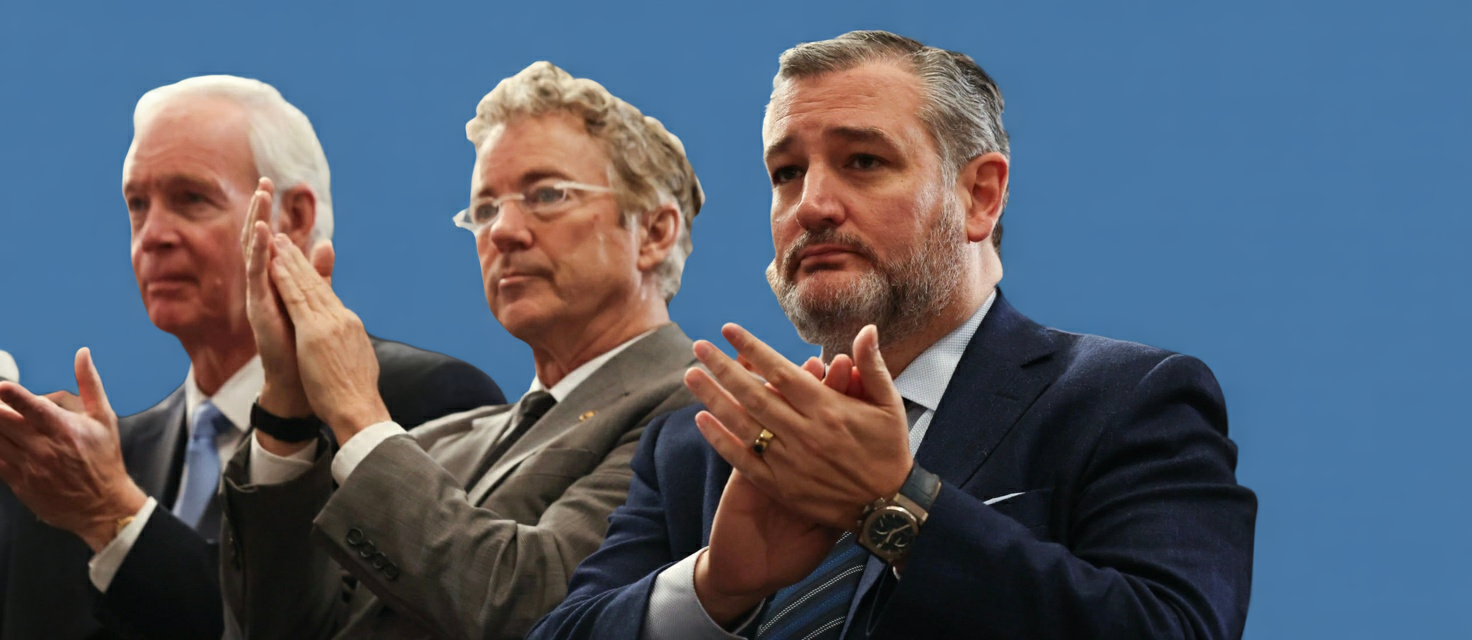Senate Republicans Splinter Over Iran Threat

Republicans Divided on U.S. Strategy Towards Iran
Within the ranks of Senate Republicans, opinions vary significantly on the best approach for President Donald Trump in dealing with Iran’s nuclear ambitions. Despite a unanimous agreement on the necessity to prevent Iran from acquiring nuclear weapons, disagreements persist about whether it involves toppling the Iranian regime or engaging in military actions.
Senators’ Views from Negotiations to Military Interventions
Senator Rand Paul of Kentucky, known for his constitutionalist views, insists that the President should adhere to the Constitution’s Declare War Clause. Although he doubts President Trump will consult Congress to declare war, Paul advocates for negotiation and strongly opposes deploying American troops to Iran.
Senator Josh Hawley from Missouri, expresses confidence in President Trump’s ability to avoid involving the U.S. directly in actions against Iran, preferring to leave matters in the hands of Israel to dismantle Iran’s nuclear program. Hawley remains optimistic about preventing Iran from developing nuclear weapons.
In Montana, Senator Tim Sheehy argues against U.S. military involvement, citing the complexities and uncertainties of war. He supports allowing Israel to manage its own defense strategies independently.
|
Senator Thom Tillis of North Carolina takes a more aggressive stance, advocating for the overthrow of Iran’s government, supporting military measures to eliminate the Iranian leadership.
Senator Kevin Cramer from North Dakota expresses a keen desire for the U.S. to assist Israel in its efforts against Iran’s nuclear facilities, concerned that diplomatic efforts might fail.
Senator Ted Cruz of Texas champions a strategy of “peace through strength” and backs Israeli efforts, favoring a regime change induced by the Iranian people over direct military action by the U.S.
Senator Lindsey Graham of South Carolina, known for his hawkish views on foreign policy, advocates for direct action to dismantle Iran’s nuclear program and supports collaborative military efforts with Israel. While he is cautious about engaging in a prolonged Middle Eastern conflict, he places his trust in President Trump’s leadership.
Conclusion
The spectrum of opinions among Republican senators highlights the challenges President Trump faces in forging a coherent U.S. policy towards Iran. While all concur on the critical goal of preventing a nuclear-armed Iran, the methods proposed range from diplomatic negotiations to military interventions, reflecting the broader national debate over the U.S.’s role on the global stage.









No Comments